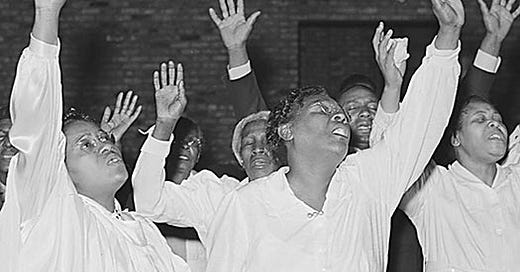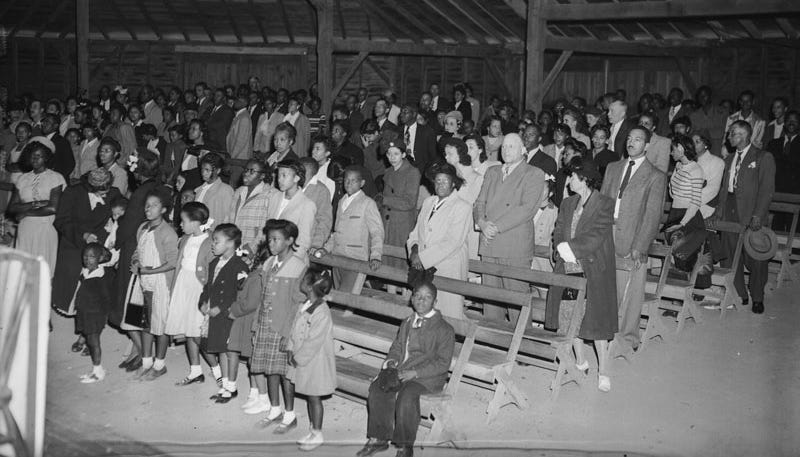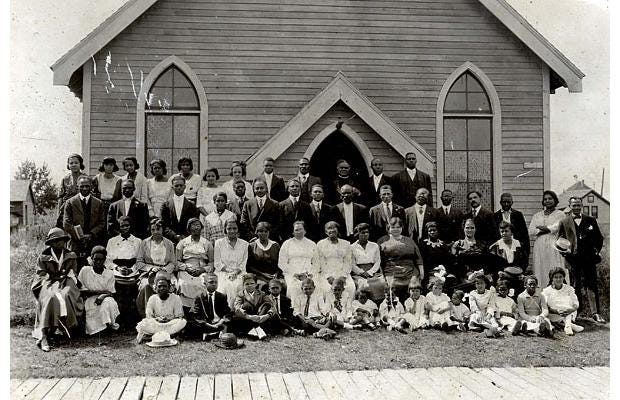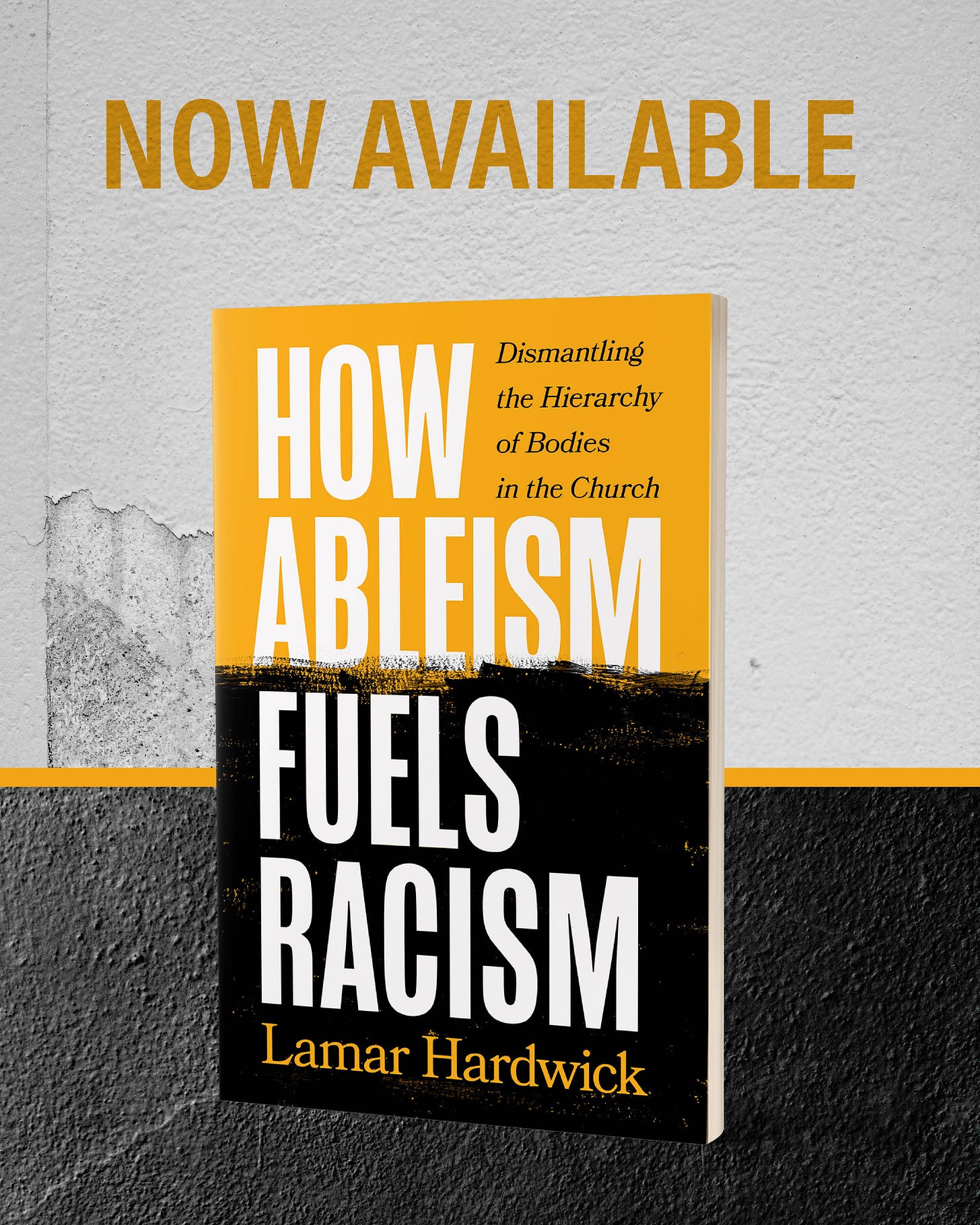In previous posts I shared some excerpts of my work on the historically Black Church and its influence on Civil and Disability rights. Below is another excerpt of what I’ve been working on and hoping to publish as a book in the near future. Enjoy.
On a cold damp misty Atlanta night in the early 2000’s, I pulled into the parking lot of one of Atlanta’s most famous historically Black Churches. The hour was late. When I arrived it was around 9:00 p.m. I had worked all day at my full-time job as a retail manager and like many of the people at this meeting, I was tired yet determined to participate in this gathering. This meeting was important. It would eventually set the stage for my vocational pursuits and even though I didn’t realize it at the time, it would lead me toward an ever-evolving sense of calling and purpose.
The meeting was my very first appearance before the board of examiners in the African Methodist Episcopal Church. In the A.M.E. Church, a historically Black Church, the Board of Examiners is a part of the process for those in the church who have expressed a calling into ordained ministry in the church. In addition to working with the BOE, applicants for ordination must attend weekend classes (usually once a month) held at a local church. In the earliest days of the A.M.E. church, Blacks aspiring to become ordained clergy were prohibited from attending seminary, therefore the church created its own system for training its minsters. This tradition continues, not necessarily because of lack of access to seminary, but for the sake of educating aspiring clergy about the rich history of the A.M.E. church.
Although I eventually moved on from the A.M.E. denomination, I remain shaped by its dedication to training and education for its clergy. A Master of Divinity degree was a requirement for those seeking ordination in the church, and it was that requirement that gave birth to my hunger for theological education. As much as I appreciated the push to learn, one of the most meaningful experiences I had matriculating through the weekend courses, was the initial focus on helping the newly licensed preachers to understand and articulate their call story.
The call narrative is an important part of Black Theology and Black Church culture because of the influence of Israel’s liberation in the Exodus story. Both the call of Moses and the call of Israel provided the Black Church with the spiritual energy needed to sustain its pursuit of full citizen in America. God’s challenge to Moses was to instruct pharaoh to release his people so that they may “worship in the wilderness.”
In this call narrative we see three things that laid the foundation of the importance of remembering and rehearsing the call in the Black Church. First, we see that God’s call is a call to a community. While there is a necessary focus on Moses as the deliverer in many Black Churches, there is still a recognized extension to that call. God called for the liberation of an oppressed people. In Black Theology and Black Church culture, recognizing this is important because it reveals an essential part of God’s nature, character, and intentions.
Secondly, we see that the call to liberation is connected to the call to worship. We will examine more in the next section about lessons from the Black Church that disability movements can learn, but what we see here is the reality that the call to liberation is about political struggle as well as the piety of a people group. In making this connection, Black Liberation Theology views liberation as a spiritual calling. It also means that because the word for worship is interchangeable with the word service, Black Theology and the Black Church views liberation as a collective work, a work to be performed for the community and by the community.
Third and finally, we see that the presence of oppression is a serious obstacle to a groups ability to obey God fully. In God’s call to the people of Israel, a statement is made about the importance of liberty or the freedom of movement both spiritually and politically. When a community is oppressed and has limited or no rights in the nation they inhabit, they also become subject to religious oppression. In its earliest forms, the Black Church led by enslaved Africans and then freed Blacks, recognized that the Christianity that they were presented was in fact religious bondage. So they resisted the teachings of White Christians who sought to relegate them to a life of slavery and subordination. In light of this, it can be argued that one of the earliest and largest religious deconstructionist movements began with the historically Black Church.
In the Black Church context and in Black Liberation Theology, the call to service is a call to the responsibility to join God in the liberatory work that he began with his chosen people. The call is an invitation to respond to the spiritual, social, and political needs of those who have had their ability to obey God fully stripped away from them through systems of oppression. The theology of the Black Church has stood the test of time in this regard and yet it is still ever evolving both inside and outside of its walls.







